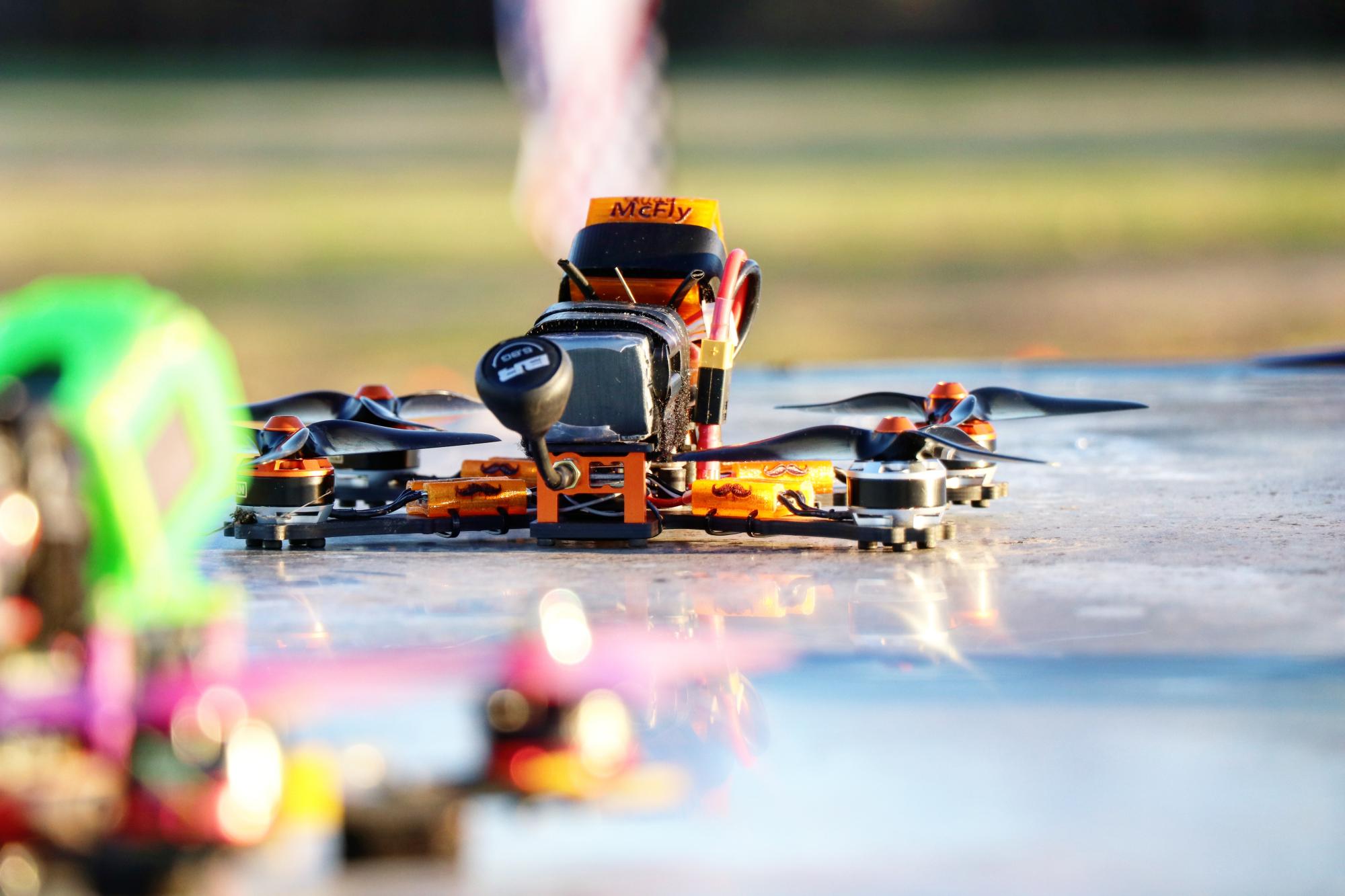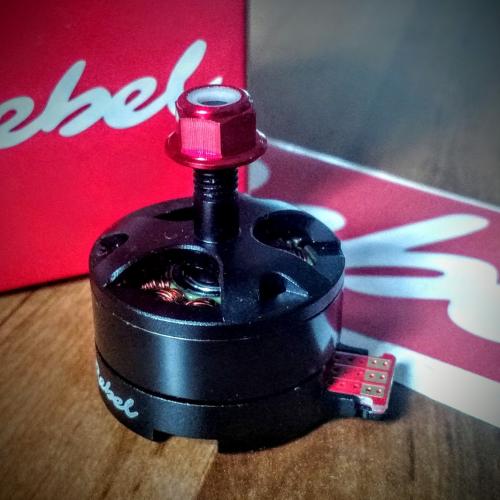- Home >
- Results >
- Motor Tests >
- Mid KV >
- Rebel Pro 2206(6.5) 2300kv
Thanks to a friendly community donor, I was able to pick up this highly anticipated motor and put some speculation to rest!
Check out the full list of motors in this series here
Summary
There has been a lot of discussion about this particular motor on social media and the forums, so I was interested to get this motor in and see it for myself. First impressions of this motor are good. Machining is excellent, tolerances are tight, and the motor feels smooth. I was curious about the solder tab connections, but they are sold in the housing and appear secure. The solder pads themselves are slightly smaller than I might have wished, but they do have vias strategically placed that should help prevent detachment from the PCB,and pulling away, especially once well soldered. The primary downside here is weight. At 35g this motor is competing with much larger 2207 and 2208 motors. The real stator size of this motor is 6.5mm, which still technically fits within "2206" as a lose definition. It would be nice to see that stator size listed on the spec sheet though, as SunnySky has done with their offset stator sizes. The windings are multi-strand, but look nice and tight. 7075 T7 aluminum stated in the spec sheet for this motor is an intresting choice in material. It has a slightly lower tensile strength than T6, but it has a much higher failure elongation. Basically it will stretch more before it breaks, meaning it is less susceptible to stress fractures. Whether that will matter in this particular application or not is unclear, but at the very least it shouldn't have any disadvantages over T6.
Now on to the bench results!
Test Results
Based on the charactersitics of this motor, the results were about right where I expected. Due to the larger stator size it is able to achieve very respectable results both in terms of rpm efficiency and response times. The results put it pretty much directly betwen the top performers in the 2206 N52 class, the RotorGeeks 2206 2350kv, the Tornado T1 2206, and the ZMXv3 2206. Two of these motors weigh significantly less though, with the T1 at 31g and the ZMX at 28g, while the Rotorgeeks comes in only 2g lighter at 33g. If we narrow the results by matching weight class, the Rebel also sits right betwen the F60 2200kv and the 2450kv in terms of both power and current consumption, while being equal in weight. That puts the Rebel in an excellent middle ground, finding a balance between power and current consumption. A secondary advantage of the 6.5mm stator size on the rebel is that it will do very well on high voltage batteries. 5S and 6S will show a real advantage, both in terms of power output and response times, and that is where this motor is most likely to shine. Unfortunately I did have an issue with this particular motor on the bench test. At the end of the test sequence it was rattling a bit when spun by hand, and on closer examination the magnet collar is starting to seperate from the top of the bell. I contacted Rebel imediately and they were awesome about support. Chase took time during his rush to get to Drone Nationals to make sure I had a replacement on the way. I think it is most likely this represents an single failure under the stresses of static load testing rather than a wide scale problem as there haven't been any reported cases of this happening elsewhere, but I will run the test again on the new motor to be certain. Overall very decent performance out of this motor.
UPDATE: I received the replacement from Rebel in very fast order, and the new motor does not seem to have any of the issues my first one did, and is still smooth after the test run. Results were essentially identical otherwise.










































